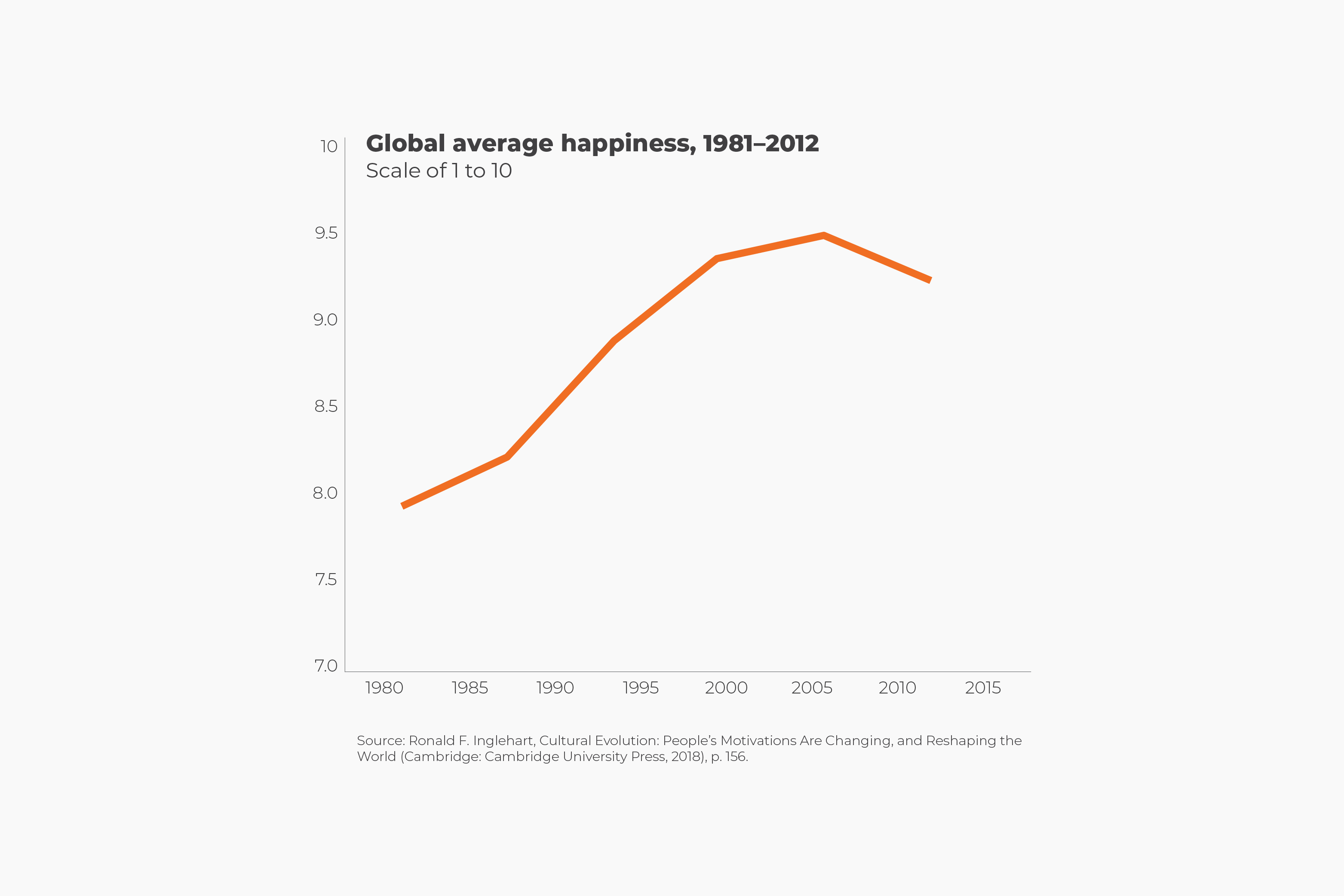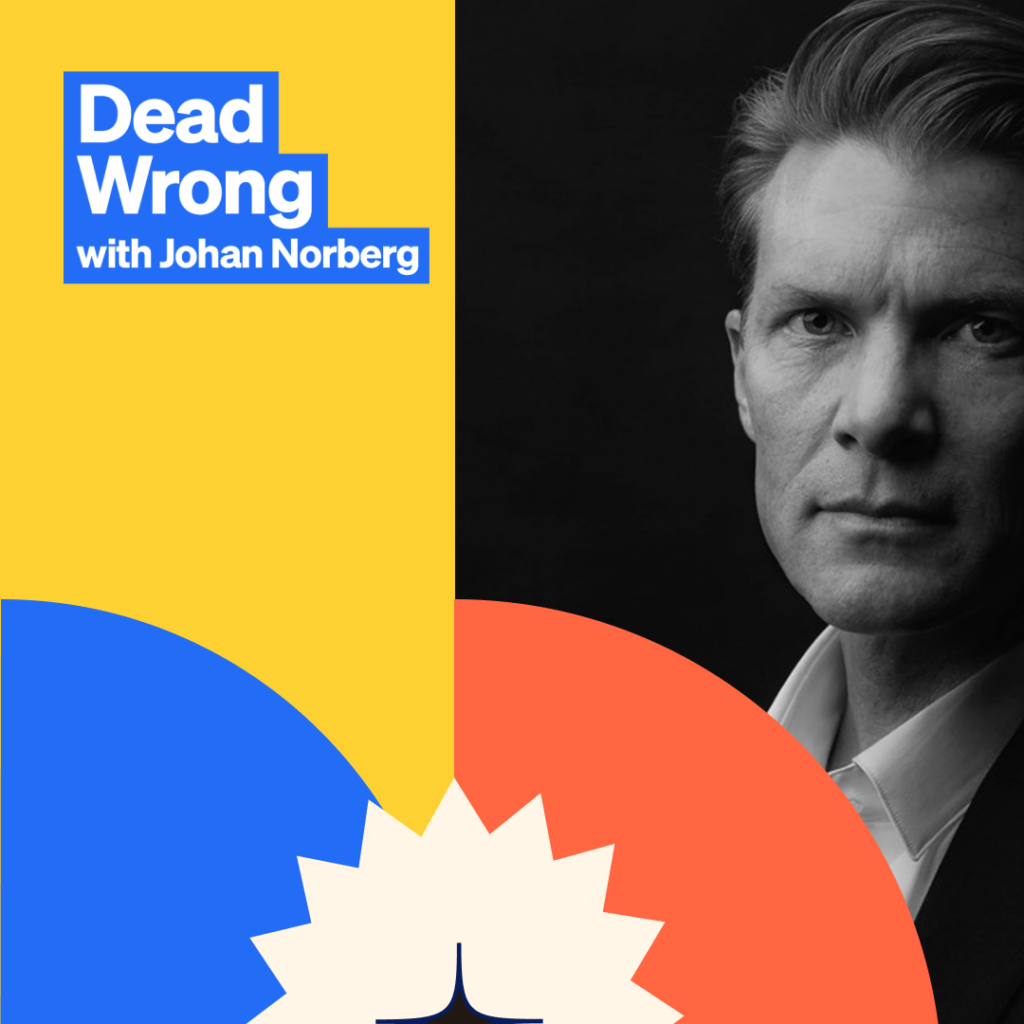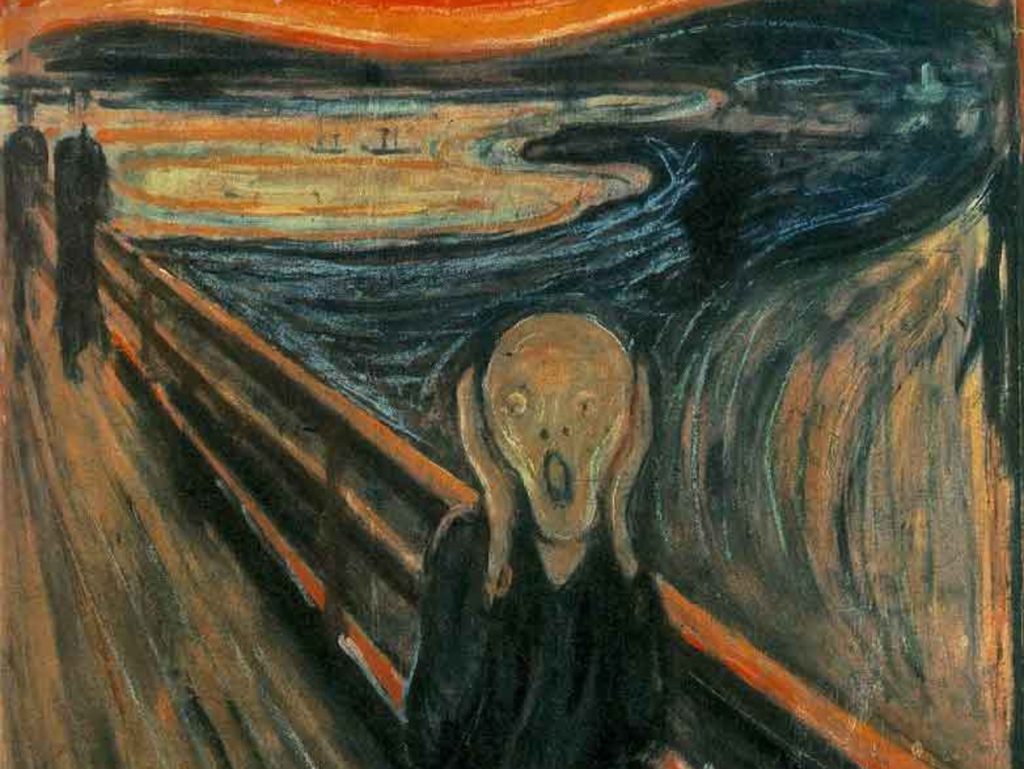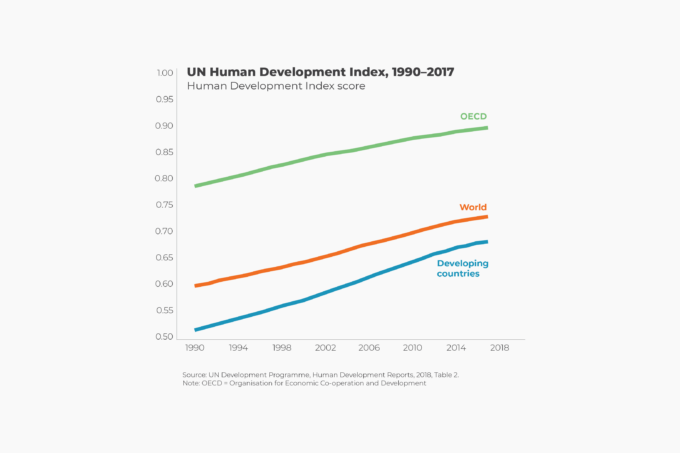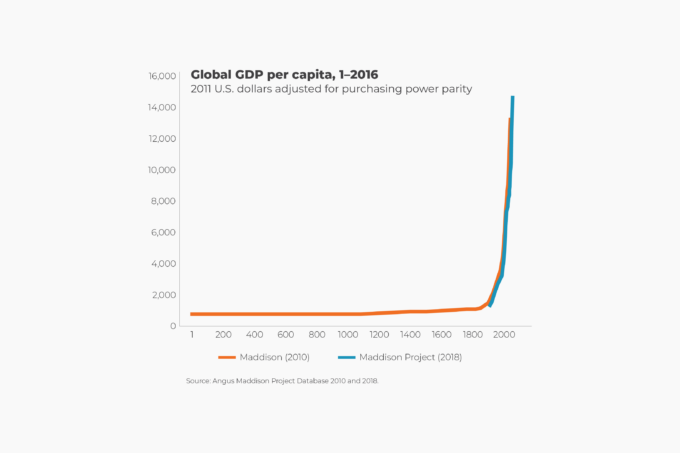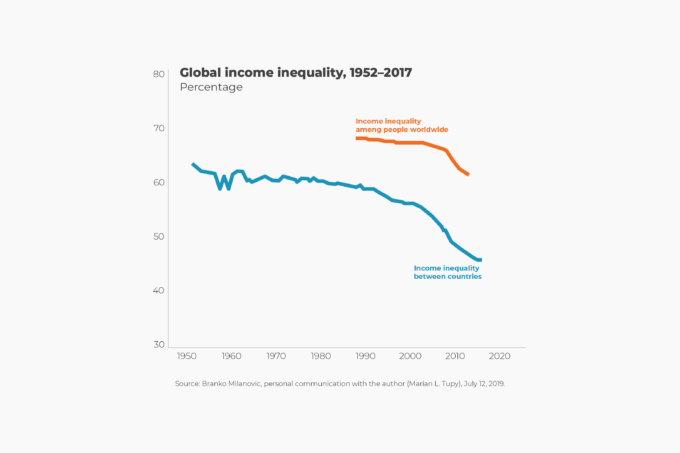People around the world are generally becoming happier with their lives. In six waves of polls since 1981, the World Values Survey (WVS) has asked respondents, “Taking all things together, would you say you are very happy, quite happy, not very happy, or not at all happy?”
University of Michigan sociologist Ronald Inglehart, founder of the WVS, reports in his 2018 book Cultural Evolution that ascending levels of subjective well-being correlate strongly with rising per capita income, rising levels of democracy, and increasing social liberalization as expressed by growing tolerance for racial, sexual, and religious outgroups. Those three factors combine to broaden the range of free choices available to people, thus enhancing happiness.
Using WVS data from all 12 countries that have been regularly surveyed from 1981 through 2014—Argentina, Australia, Finland, Germany, Japan, Mexico, the Netherlands, South Africa, South Korea, Spain, Sweden, and the United States— Inglehart reports that average global happiness has been rising. This result is in line with the data reported in this book showing that the world has been experiencing remarkable increases in income, democratization, and social tolerance over the past four decades.
Citing happiness survey data for 14 wealthy countries from the 1950s, economist Richard Easterlin argued in 1974 that almost no correlation existed between rising national per capita income and rising happiness. Inglehart points out that subsequent research has overturned this apparent paradox and finds that the residents of wealthier nations are indeed happier than those of poorer nations. In addition, richer people in a given country are happier than their less well off fellow citizens. And finally, as countries get richer, their people do indeed become happier. More money may not buy happiness, but the two do correlate.

